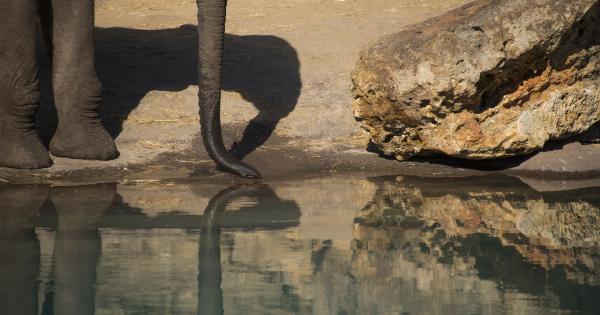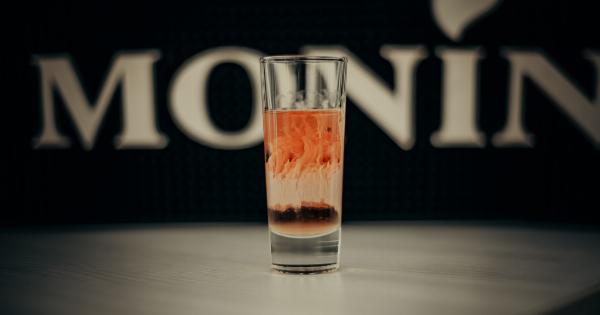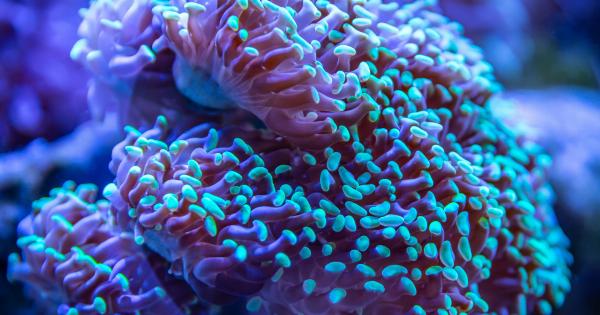Dehydration is a common problem that many people might not even realize they have.
This condition affects people of all ages, backgrounds, and lifestyles, and can be caused by a variety of factors, including weather conditions, chronic illness, medication use, and more.
But what exactly is dehydration? Simply put, it’s when your body doesn’t have enough water to function properly.
While mild dehydration can often be remedied by drinking plenty of water and other hydrating fluids, severe dehydration can lead to serious health complications, such as kidney damage, seizures, and even death.
To help you stay on top of your hydration levels, we’ve compiled a list of five symptoms of dehydration that you might be overlooking:.
1. Dizziness and Confusion
One of the first signs of dehydration is often dizziness or confusion. This is because your brain needs a constant supply of water and electrolytes to function properly.
When you don’t have enough fluids in your body, your brain can’t work as efficiently, which can lead to confusion, difficulty concentrating, and even fainting.
If you’re feeling lightheaded or disorientated, it’s important to drink plenty of water and other hydrating fluids right away. If your symptoms persist or worsen, seek medical attention immediately.
2. Dry Mouth and Thirst
Another common symptom of dehydration is a dry mouth and constant thirst. When you’re dehydrated, your body produces less saliva, which can lead to a dry or sticky mouth.
Additionally, your brain will send signals to your body telling you to drink more fluids in an attempt to rehydrate.
If you’re feeling thirsty all the time, it’s important to drink plenty of fluids. However, keep in mind that thirst is not always a reliable indicator of your hydration levels, especially in elderly or chronically ill individuals.
3. Headaches and Fatigue
Dehydration can also cause headaches and fatigue. This is because when your body doesn’t have enough water, it can’t properly regulate its temperature.
As a result, your body may divert blood flow away from your brain to cool other parts of your body, which can lead to a headache.
In addition, dehydration can cause you to feel tired and sluggish. This is because your body relies on water to produce energy, and when you don’t have enough fluids, your body will start to conserve energy instead of using it.
4. Dark Urine and Infrequent Urination
One of the most obvious signs of dehydration is dark urine and infrequent urination. When you’re dehydrated, your kidneys will conserve water by producing less urine. As a result, your urine will become more concentrated and darker in color.
If you notice that you’re not urinating as frequently as usual, or that your urine is dark in color, it’s important to start drinking more fluids right away. This can help flush out any toxins in your body and prevent kidney damage or infections.
5. Muscle Cramps and Joint Pain
Lastly, dehydration can cause muscle cramps and joint pain. This is because your body needs water to properly lubricate your joints and keep your muscles functioning properly.
When you don’t have enough fluid in your body, your muscles and joints may start to feel stiff or sore.
If you’re experiencing muscle cramps or joint pain, it’s important to drink plenty of fluids and stretch regularly. Additionally, try to avoid any strenuous activities or exercises until your symptoms have completely resolved.
The Bottom Line
Dehydration is a serious condition that can have a variety of negative health effects. If you’re experiencing any of the symptoms listed above, it’s important to take steps to rehydrate your body as soon as possible.
To prevent dehydration from occurring in the first place, make sure to drink plenty of fluids throughout the day, especially during hot weather or intense exercise.
Additionally, avoid consuming too much caffeine or alcohol, as these can actually dehydrate your body even further.































